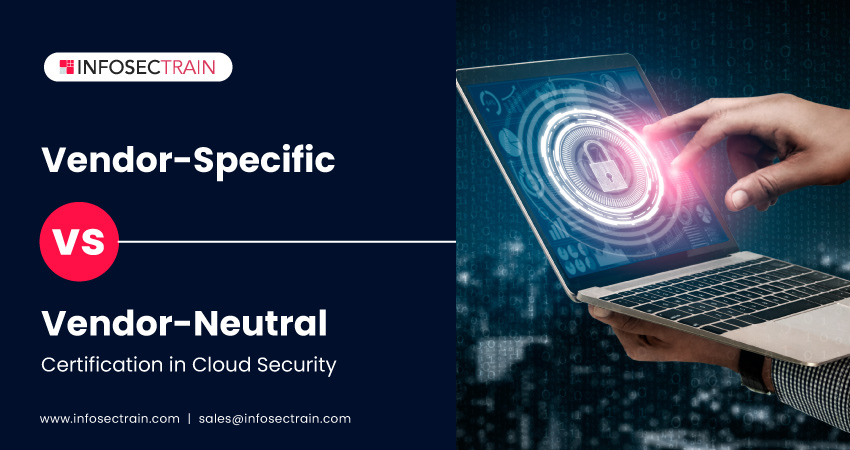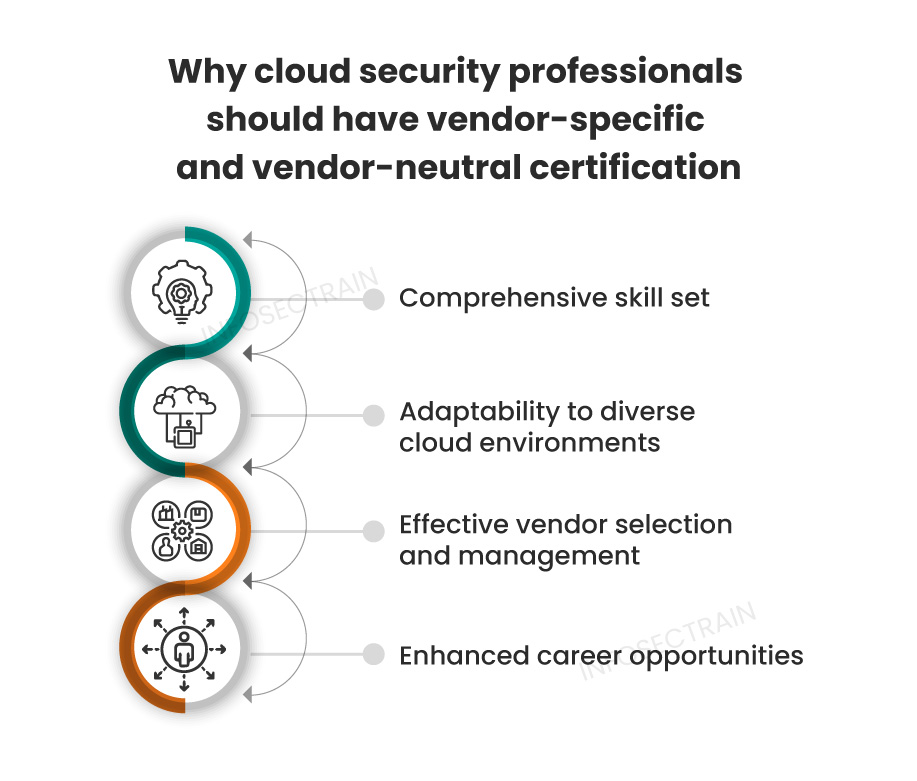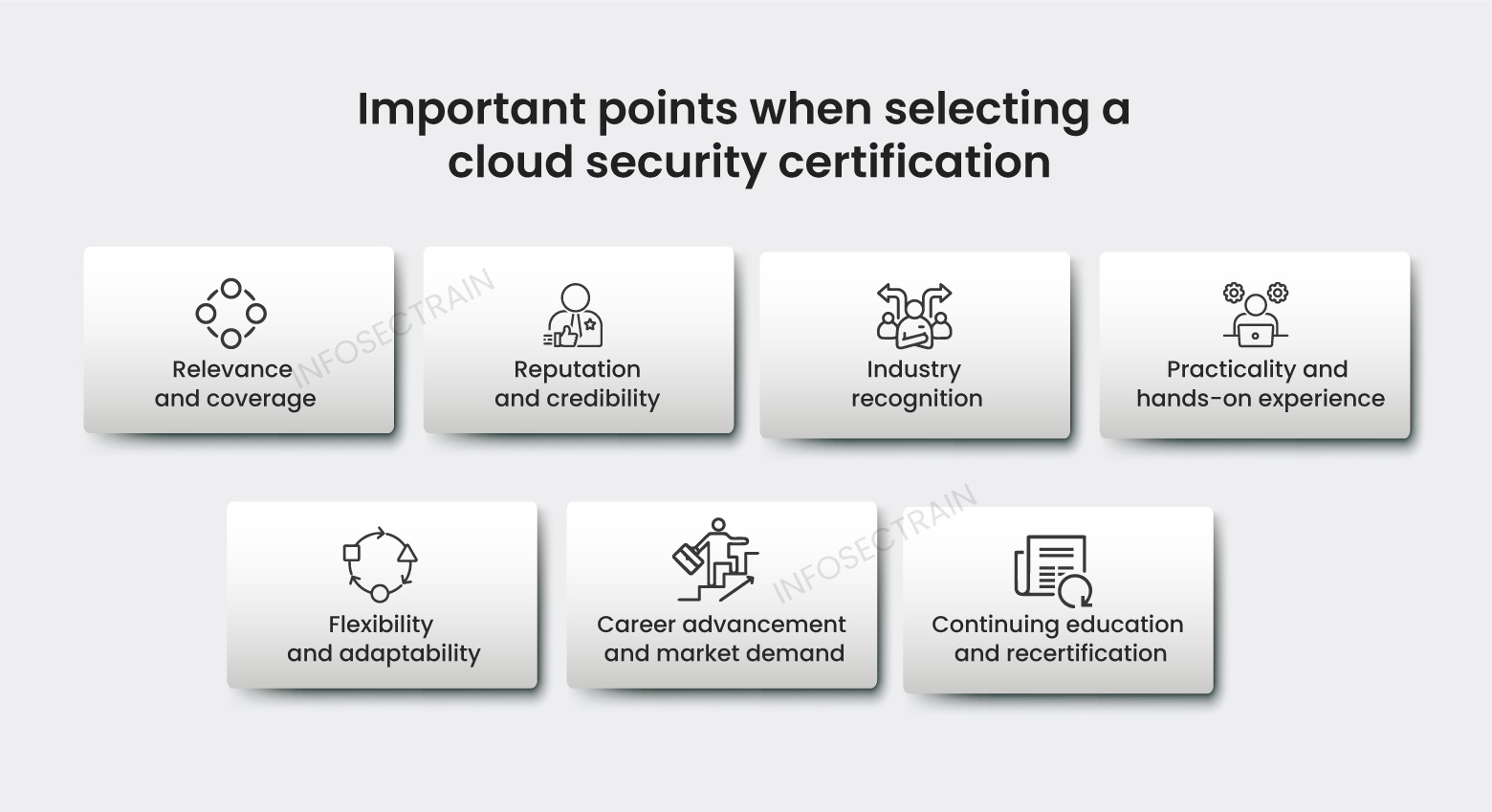Vendor-Specific Vs. Vendor-Neutral Certification in Cloud Security
As organizations increasingly adopt cloud computing solutions, the need for skilled professionals to secure these environments becomes paramount. Cloud security certifications are vital in validating an individual’s expertise and competence in safeguarding cloud-based systems and data. In the realm of cloud security certifications, two distinct paths emerge.

1.Vendor-specific certifications
Individual cloud service providers offer vendor-specific certifications to endorse proficiency in their particular products or services. These certifications demonstrate an in-depth understanding of a vendor’s cloud security tools, features, and best practices. Some of the popular vendor-specific certifications in cloud security include:
- AWS Certified Security – Specialty
- Azure Security Engineer Associate
2. Vendor-neutral certifications
Vendor-neutral certifications are not bound to any particular cloud service provider. They focus on assessing a professional’s comprehensive knowledge of cloud security principles, practices, and standards applicable across various platforms. These certifications validate a broader understanding of cloud security concepts, including risk management, compliance, data protection, and architecture design. Some of the vendor-neutral certifications include:
- CompTIA Cloud+
- Certificate of Cloud Security Knowledge (CCSK)
- Certified Cloud Security Professional (CCSP)
Why should cloud security professionals need to understand the applications of both?
Here are some key points why cloud security professionals should know both certification types:

- Comprehensive skill set: Cloud security is a complex and evolving field. By pursuing both certifications, professionals gain extensive knowledge and skill sets. Vendor-specific certifications provide in-depth expertise in securing specific cloud platforms or services.
- Adaptability to diverse cloud environments: Cloud security professionals must understand vendor-specific and vendor-neutral certifications because organizations use multiple cloud vendors or a mix of cloud types. Vendor-specific certifications help professionals adapt to each vendor’s security requirements and tools. Vendor-neutral certifications provide a broader understanding of cloud security across different platforms.
- Effective vendor selection and management: Cloud security professionals often participate in evaluating and selecting cloud service providers for their organizations. Knowledge of vendor-specific certifications enables them to assess the security capabilities of different vendors. Furthermore, vendor-neutral certifications provide a foundation for professionals to evaluate and compare security practices across vendors. This knowledge facilitates effective vendor management, ensuring consistent security governance and oversight.
- Enhanced career opportunities: Cloud security professionals with vendor-specific and vendor-neutral certifications have better job prospects. Employers value their ability to work with different cloud technologies and adapt to evolving security needs. Multiple certifications show they have a broad skill set and can handle various security challenges. They can work in organizations with specific cloud vendors or complex cloud setups.
Consider a cloud security certification based on these factors
When choosing a cloud security certification, several important pointers must be considered. These factors help you decide and select the certification that aligns with your career goals and industry requirements. Here are some key considerations:

- Relevance and coverage: Assess the significance of the certification to your desired career path and the specific cloud technologies you work with or plan to work with.
- Reputation and credibility: Research the reputation and credibility of the certification program and the organization offering it. Consider certifications from reputable and well-established organizations recognized and respected in cloud security.
- Industry recognition: Consider certifications widely recognized and accepted in the industry. Look for certifications that hold credibility and are sought after by employers and organizations. Recognized certifications can boost your professional profile and increase job opportunities.
- Practicality and hands-on experience: Determine whether the certification program emphasizes practical skills and hands-on experience. Practical, real-world scenarios and hands-on exercises can enhance your ability to effectively apply cloud security concepts and techniques.
- Flexibility and adaptability: Consider certifications that offer flexibility regarding study materials, exam formats, and scheduling options. Look for certifications that allow you to adapt to your learning style, work schedule, and personal commitments.
- Career advancement and market demand: Research the market demand and job prospects associated with the certification. Look for certifications valued by employers and have a strong demand in the job market.
- Continuing education and recertification: Evaluate the recertification requirements and ongoing education opportunities associated with the certification.
Certified Cloud Security Engineer (CCSE) with InfosecTrain
As businesses increasingly depend on cloud platforms, the demand for cloud security professionals is expected to rise significantly. Among the most sought-after roles in cybersecurity, the Certified Cloud Security Engineer (CCSE) training offered by InfosecTrain is tailored explicitly for individuals specializing in cloud security. This comprehensive program equips you with the necessary skills to securely access cloud resources using Identity and Access Management (IAM) techniques. By enrolling in this program, you will gain valuable expertise in protecting cloud-based systems and data, ensuring the security of cloud infrastructure for organizations.







 1800-843-7890 (India)
1800-843-7890 (India)